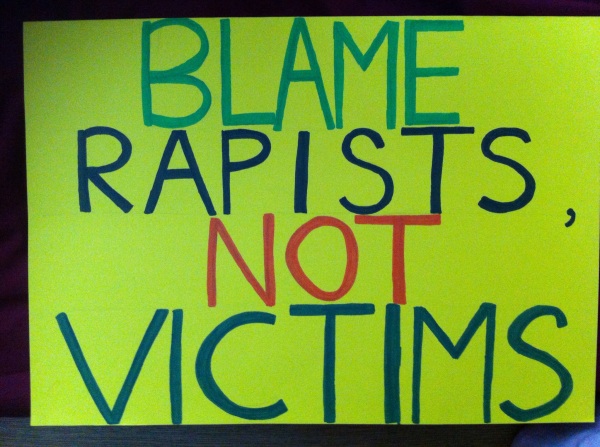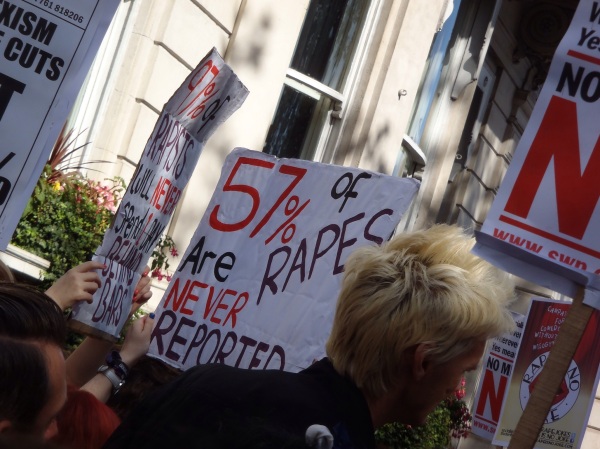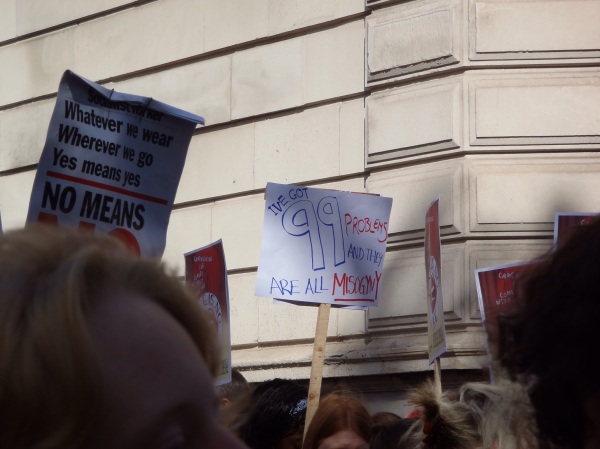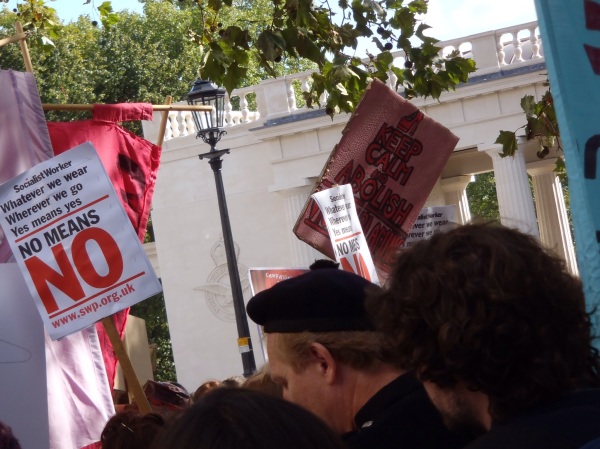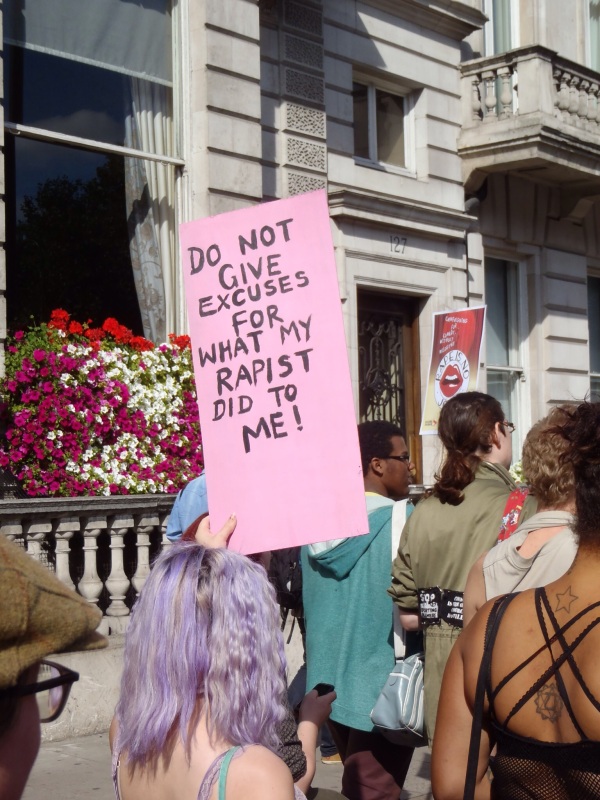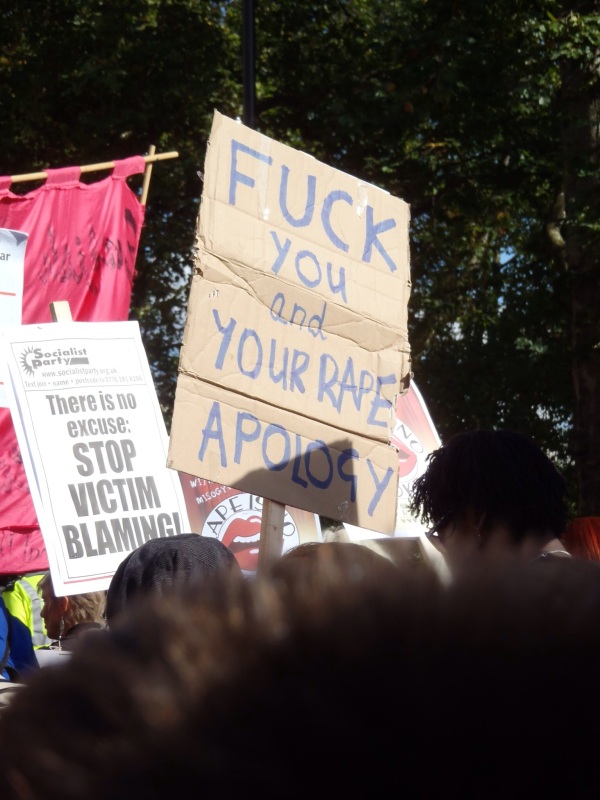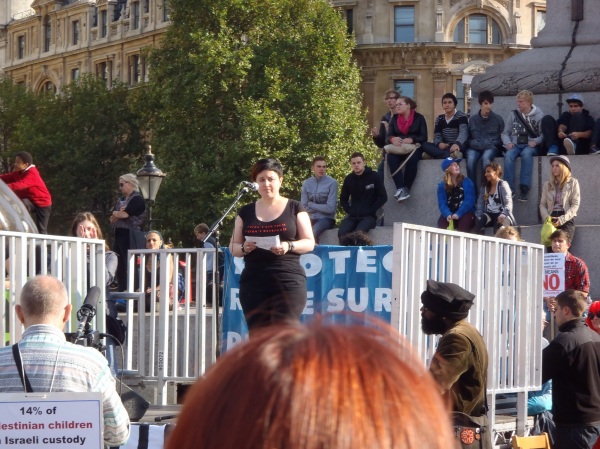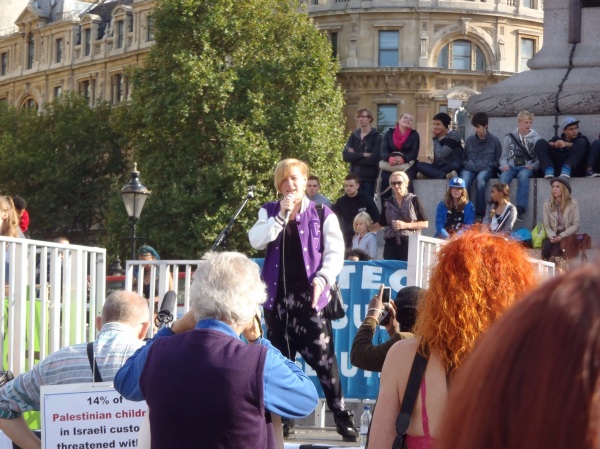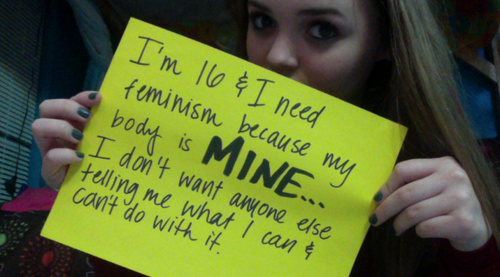
Source: whoneedsfeminism.tumblr.com
Who owns your body? Well, you do, of course. But if you’re a woman, I’m afraid society doesn’t quite see it that way.
Earlier this week, Angelina Jolie made headlines when she disclosed her decision to undergo a preventative double mastectomy, to reduce her risk of breast cancer from 87% to less than 5%. While many were supportive of her choice and courage, hordes of outraged men (and some women) took to Twitter and Facebook to mock and condemn her for it. Among them were comments expressing sympathy for Brad (“Poor Brad”), jeering at Brad (“Serves him right for leaving Jennifer Aniston”), sadness for themselves that Angelina’s breasts had been removed (“There is no God”, “The best thing about her is gone”), as well as downright commands that she reverse the procedure (“Please put the boobs back on your chest”).
Here’s a small selection, credit to @isawfireworks on Twitter:

Let’s think about that for a little bit. Here is a woman, who is a world-famous actor, director and screenwriter, with Golden Globe and Academy awards to her name. Not only does she have a great career and a loving family, she is a UNHCR ambassador, and has invested her time and effort in bringing humanitarian aid around the world. But apparently, none of that matters. The greatest thing about her, that she should never let go of, no matter what the cost to her health, are her breasts.
We’ll come back to this later, but for now, let’s move on to another incident that ignited social media in the UK this week. UKIP, a far-right political party, has always been associated with offensive views, and yesterday saw them the butt of many a joke as it was revealed that one of their biggest donors believed that women wearing trousers were being deliberately hostile towards men. In fact, he believed this so deeply that he wrote an entire book about it, entitled ‘Women in Trousers: A Rear View’.
Here are some priceless quotes:
“Women have big bottoms, they are meant to have big bottoms. Countless women who would look lovely in dresses or skirts are embarrassingly unattractive in trousers.”
“Walk along any street and you see women using trousers like a uniform every single day. This is hostile behaviour. They are deliberately dressing in a way that is opposite to what men would like. It is behaviour that flies against common sense, and also flies against the normal human desire to please.”
Fortunately, his remarks were met with hilarity and ridicule, but as pointed out in the blog HerbsandHags, his comments are merely an extreme example of what many men truly feel — that they have a right to be pleased by the female body. Any, and every, female body.
And that is what links the incident of the hostile trousers with the backlash against Angelina Jolie. It stems from the idea that women’s bodies are public property, in particular, men’s property, and thus everything that a woman chooses to do with it is viewed as a way of pleasing them, or as an affront to them. It is for this reason that strange men on the Internet feel entitled to chastise Angelina Jolie for prioritizing her health over their right to ogle her breasts, and it is for this reason that whenever a woman is unhappy about her weight, random men think it a great comfort to her to proclaim, “It’s fine, I prefer larger women.” Because, didn’t you know, women’s bodies exist primarily for male pleasure.
The unspoken notion that it is not women, but men, who possess the rights to our bodies, is a dangerous one. Today, I was dismayed to find out that three men in Sweden had been cleared of rape charges, despite the horrific nature of what they had done, and the fact that they clearly had not had consent. (Read more about the case here. TW.) The judge’s verdict? “People involved in sexual activities do things naturally to each other’s body in a spontaneous way, without asking for consent.”
You see, when we are not considered to be the legitimate owners of our bodies, then our decisions regarding them become unimportant. Thus, the Swedish woman’s desire to not have something done to her body was seen as less valid than the rapists’ desire to carry it out; Angelina Jolie’s desire to have surgery was seen as less valid than men’s desire to leer at her breasts; and women’s desire to wear what they like is seen as less valid than men’s opinions on what they should be wearing. These vary in severity and the horror of their consequences, but it is the same pernicious mentality that underlies them all.
Who owns our bodies? We do. And it’s time the world knew that.

